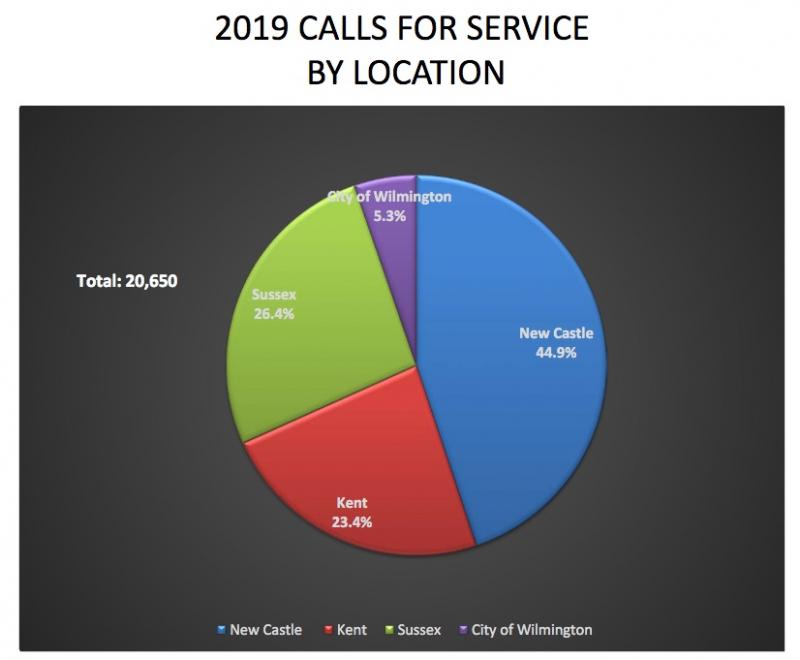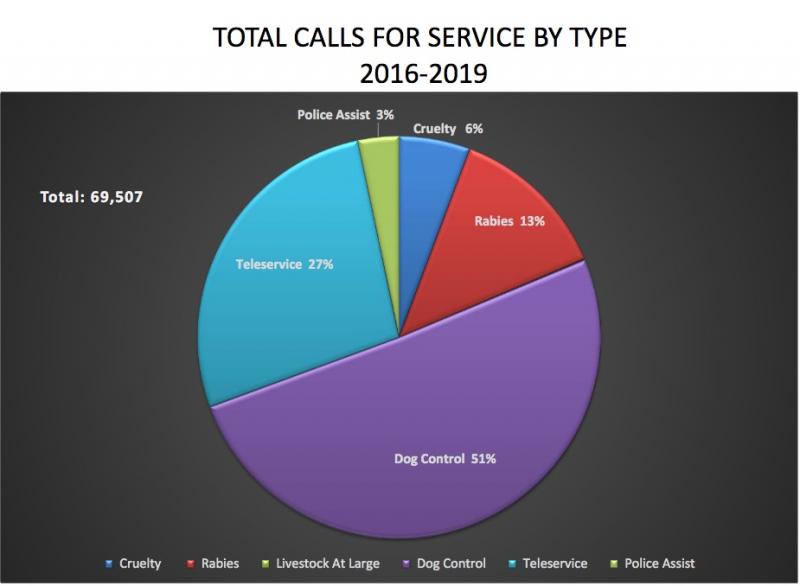Sussex will pay more for dog control
Sussex County will pay $80,000 more for its dog-control contract with the Delaware Office of Animal Welfare for a total of $853,422 in fiscal year 2022, with another 2 percent increase in fiscal year 2023 to $870,491.
The increase is based on the county's population growth plus the need for more staff.
Christina Motoyoshi, Office of Animal Welfare executive director, said an increase is required under terms of the contract based on a per capita population formula. She said increased funding will be used with other money from Kent and New Castle counties and the City of Wilmington to hire three additional animal welfare officers.
She provided an overview of the office during Sussex County Council's March 9 meeting.
Concerns over increase
District 5 Councilman John Rieley and District 2 Councilwoman Cindy Green questioned the increase.
Rieley said he was shocked at the amount the county pays for animal-control services.
“How much input from Sussex County is there? Can we influence the process and not just pay the bill?” he asked. “We are writing a pretty big check, and I would like to have input.”
Motoyoshi said staff could have other conversations with county officials when needed. “We can come here to get feedback,” she said.
At the request of District 1 Council President Mike Vincent, Motoyoshi said her office would start submitting quarterly reports to the county.
“I'm also concerned about the price tag. You are doing a great job, but what would be the fallout if we don't vote for the increase?” Green asked.
“We wouldn't ask for an increase if we didn't need it,” Motoyoshi responded. “Staffing is a challenge as the number of calls and population increases.”
“Sussex County is a big county, and we need to provide backup and safety for our officers,” added OAW Enforcement Chief Mark Tobin, a retired New Castle County K9 officer who lives in Bethany Beach. “Although we are law enforcement, we don't have guns. We are here for the animals.”
District 3 Councilman Mark Schaeffer pointed out that the cost of yearly services equates to $3.64 per citizen.
Vincent said state law mandates that the Office of Animal Welfare provide services throughout the state. “I was here when the county was in charge of dog control, and it was not a pleasant experience. I would never vote to get back in the dog-control business,” he said.
Council voted 4-1 to renew the contract, with Green casting the no vote.
The state took over dog control in 2016 and established a fair pricing structure formula based on population. Sussex County's population increased from 216,000 in 2015 to 234,000 in 2019. The 9 percent increase is more than double Kent County's increase of 4 percent and 9 times the 1 percent growth in New Castle County. The City of Wilmington lost population during the time span.
What the office does
The Office of Animal Welfare contracts with Brandywine Valley SPCA for shelter services, provides training and certification for officers, provides care for pets brought to Red Cross shelters during emergencies, administers a lost-and-found pet registry for officers and residents, provides conflict resolution, interacts with constituents, and spearheads legislative initiatives.
Of the 20,650 calls for service in 2019, 26 percent, or more than 5,300, were in Sussex County.
The Animal Welfare Law Enforcement Unit is made up of 23 certified officers and seven dispatchers. Officers are on duty 8 a.m. to 8 p.m. weekdays and 10 a.m. to 6 p.m. on weekends with 24-hour emergency services available.
The unit responds to calls regarding stray and aggressive dogs, and manages dangerous dogs. It also responds to calls about animal cruelty and fighting, human exposure to rabies, seriously injured or endangered cats, and dog care violations, in addition to assisting other agencies.
“There is a much better outcome for animals. We have consistency in enforcement, and more professionalism and credibility,” Motoyoshi said.
Brandywine Valley SPCA is contracted to provide shelter services throughout the state. It has two shelters in Sussex County, one at the former Delaware SPCA facility on Route 113 south of Georgetown, and a new rehabilitation shelter off Shingle Point Road east of Georgetown.
BVSPCA provides adoption services, low-cost neuter/spay and vaccine and microchip clinics, a pet food bank, and grants to keep pets with their owners when they need assistance with food or medical care costs. “Care has greatly improved under their leadership,” Motoyoshi said.


















































